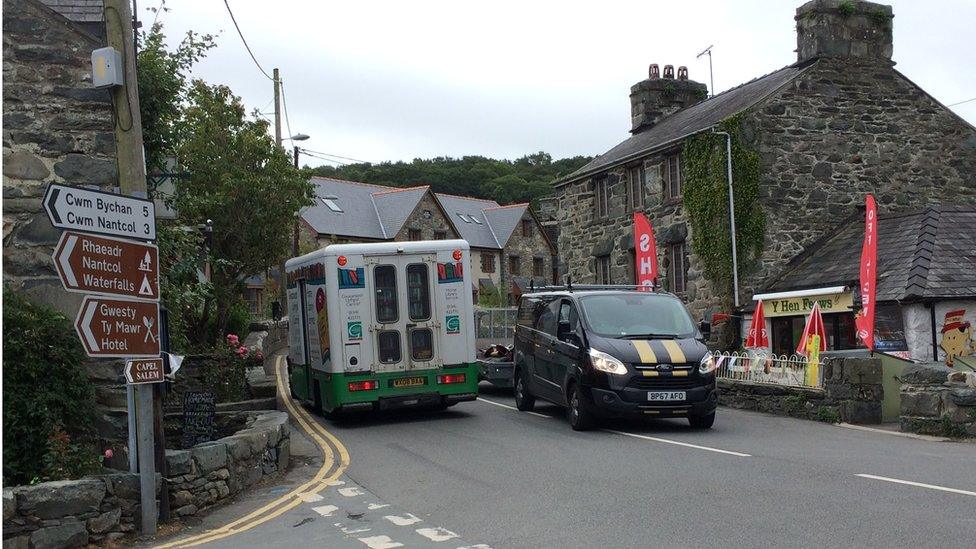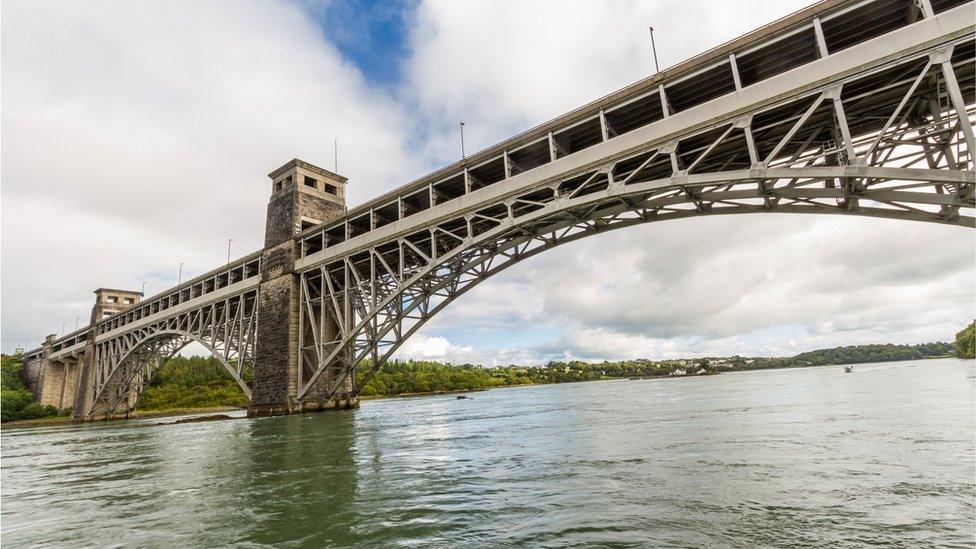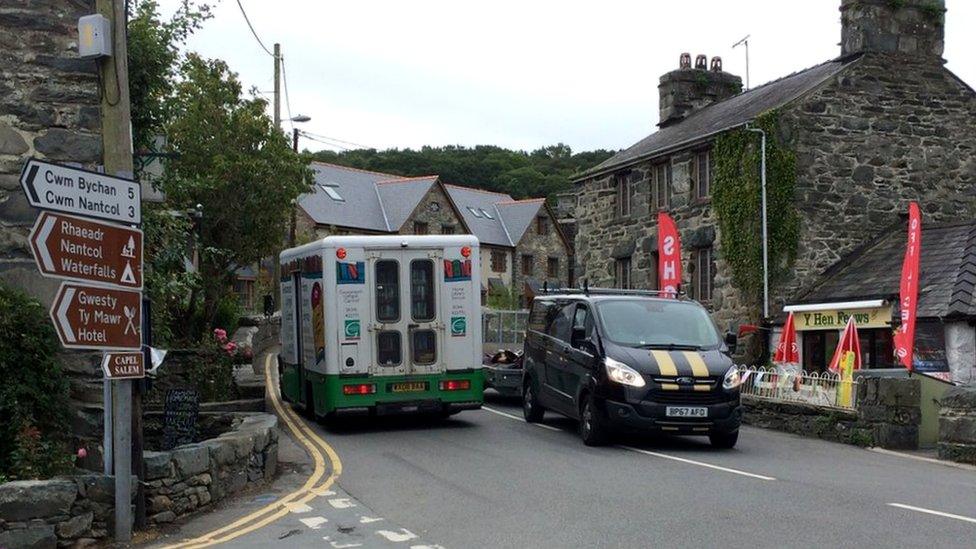Llanbedr bypass: Gwynedd accused of 'running away' from climate action
- Published

The Llanbedr bypass had been promised £10m in Welsh government cash
A row over a scrapped road bypass has deepened after a Welsh government minister accused Gwynedd council of "running away" from taking action on climate change.
Labour's deputy climate change minister, Lee Waters axed the Llanbedr bypass on Monday.
Plaid Cymru Gwynedd leader Dyfrig Siencyn said he was sacrificing rural areas "on the altar of climate change".
Mr Waters said the councillor had failed to show leadership on the issue.
The one-mile (1.5km) Llanbedr Access Road was given the go-ahead in March, with Welsh government backing worth £10m.
It had been hoped the road would open up access to a nearby airfield and help boost investment, and reduce pollution in Llanbedr.
The decision is part of an ongoing review of Welsh government road projects, and came after a panel concluded the road was likely to increase carbon emissions.
It prompted an angry response from local Plaid Cymru politicians.
Mr Siencyn said he was "furious" and added: "It is clear that once again rural areas can be sacrificed on the altar of climate change where the real problem and the answers lie in our urban areas."
At a Welsh government press conference on Tuesday Mr Waters said he understood Mr Siencyn was disappointed, but said: "I think his comments are not right."
He said Gwynedd had, like the Senedd, declared a climate emergency.
"It's no good leaders and decision makers signing up to the principle of taking action on climate change, and then when it comes to the actions necessary to follow that through, running away and saying alarming things.
"That just is not leadership that the the scale of our times requires us to make."
He said the money that the Welsh government had committed to spend on the bypass remained on the table: "We want to work with them to look at other solutions to tackle the congestion that they have some times of the year in Llanbedr."

Plans for a third Menai crossing are among the schemes being reviewed
Many new road schemes are effectively frozen in Wales at present while the Welsh government conducts its review.
Mr Waters said Llanbedr bypass had been fast-tracked on the request of Gwynedd council - the whole process will take a year.
He said it will not only look at the Welsh government's road projects, but also "when in the future new roads are the right solution and there will be times when they are the right solution".
"There will be times when they are the right solution, but we [are] increasing the bar, the test that has to be met, for the solution to be recommended."
Mr Siencyn said in response: "Gwynedd fully stands by its climate and environmental responsibilities, together with our responsibilities for infrastructure, the economy and local communities.
"Llanbedr has waited nearly 70 years for investment to the road network in Ardudwy - we will, therefore, continue to press the Welsh government to review this decision."
Tree planting plans
The row comes as COP26 takes place in Glasgow.
Welcoming the first major deal of the conference - to prevent deforestation overseas - First Minister Mark Drakeford admitted that Wales faced its own tree-planting "challenge".
Targets have repeatedly been missed in recent years - the Welsh government now considers its National Forest proposal as one of its flagship policies.
Treeplanting projects overseas have also been supported as part of a Welsh scheme that plants a tree in Uganda for every child born in Wales.
"I'll be meeting the president of Liberia later today and part of our agenda is to see whether we can do more to support that government in the tree planting efforts they wish to make," Mr Drakeford said.
Mr Waters also announced £150m to retrofit social homes with new technologies and insulation to curb Wales' emissions.
He said it would help "thousands more families be warm in their homes".
Research quoted in an Welsh government independent review in 2019 suggested the cost of retrofitting Wales' social and fuel poor homes would be much higher, between £500m and £1bn a year for ten years.

BARGE BASHING AND BICKERING: Explore Welsh canals with Maureen and Gareth
WONDERS OF THE CELTIC DEEP: Encounter mythical coasts and extraordinary creatures

Related topics
- Published1 November 2021
